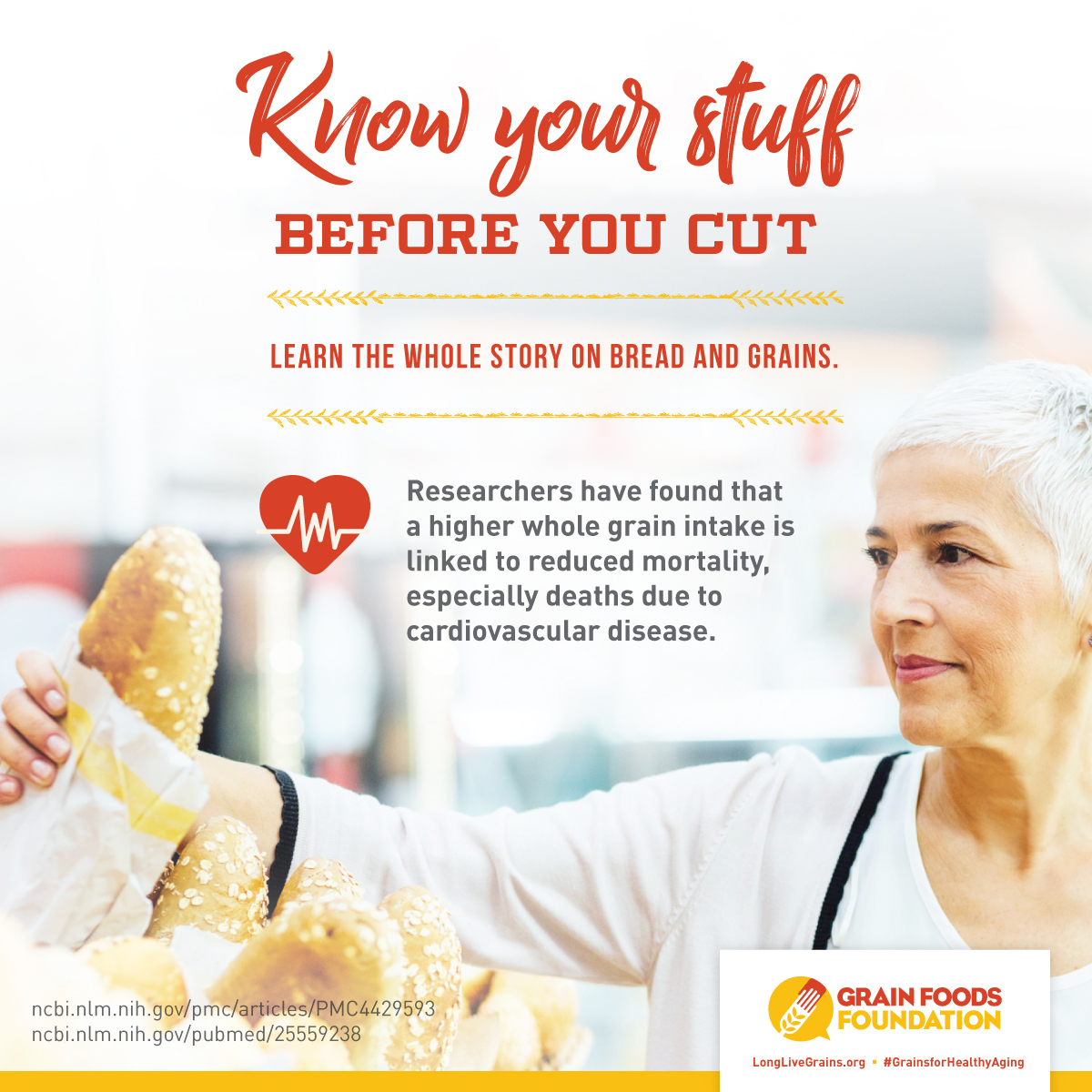Nutrition after Menopause – Be your best at every age
hashtag #grainsforhealthyaging
Healthcare professionals are often asked by their female patients, friends and family members whether nutrition needs change as they age—especially after menopause. The answer is yes!
For women, every stage of life brings different nutritional needs, which are governed by her hormones, level of physical activity, and diet. For example, as a girl grows into a woman, her nutritional needs change to support growth and development. Nutritional needs undergo enormous shifts when a woman is pregnant. In menopause, they change yet again.
To be their best at any age, women need a solid foundation of good nutrition and physical activity. The brain and body require the right nutrients, in the right amounts, at the right time.
- Carbohydrates serve as the energy source for the chemical processes of metabolism, providing the primary fuel to carry out the tasks that keep a woman functioning. Without the recommended amount of carbohydrates, the body can use protein for energy, potentially stealing away the protein needed for muscles, supporting tissues and bones. Fat also provides energy, but the body needs carbohydrates as a more efficient fuel. Excellent sources of carbohydrate are grain foods such as bread, cereals and pasta, as well as fruits and vegetables.
- Protein supports growth and the development and maintenance of muscles and tissue. Meat, fish, eggs, nuts, beans and dairy foods such as milk, cheese and yogurt provide excellent sources of protein.
- Fat makes up the third major group of nutrients. Fat is nature’s way of storing energy, so a well-nourished person needs less of it than other nutrients—and too much fat can lead to health problems. Healthy fats can be obtained from fatty fish such as salmon, nuts and nut butters, seeds and vegetable oils, including olive oil, safflower oil, canola oil and soybean oil.

Nutritional needs after Menopause
These basic nutritional needs remain consistent throughout life, but some requirements shift with menopause. A woman reaches full menopause when her menstruation has stopped for at least one year; after that year, she enters “postmenopause.” In developed countries, where life expectancies are long, women can live in postmenopause for one-third to one-half of their lives.
To make the best of those years, women should know that their weight tends to increase and calorie needs tend to decrease during menopause. Consuming more quality carbs—more grain foods and less sugar—can make weight control easier. In a study with adults aged 60 to 80, whole grain and cereal fiber intake was associated with lower total percent of body fat and lower abdominal fat mass—commonly called “belly fat.”
Proper nutrition changes somewhat after menopause because a woman tends to lose bone, connective tissue and muscle mass. The postmenopausal period may be accompanied by joint and muscle changes and some loss of strength, limiting some forms of exercise and vigorous physical activity. However, engaging in regular exercise is very important to maintaining well-being.
Estrogen and progesterone, the hormones that cause the menstrual cycle, are only minimally detectable in a woman’s body after menopause. These hormonal changes may make a woman tire more easily and lead to decreased feelings of energy. Many clinicians believe that a woman’s body responds to this decrease in energy by making her crave carbohydrates, usually bread. The appropriate carbohydrates, including refined as well as whole grains, can increase energy levels, so yes, eating bread is just fine!
Women also need more fiber for proper digestive health. Cereals, whole grains and high-fiber breads, fruits and vegetables are important contributors for meeting fiber needs. Milk, cheese and leafy vegetables are great sources of calcium, needed for strong bones. Nutrient-rich foods like whole and enriched grains provide vitamins and minerals required for good health.
Proper nutrition can enhance mental sharpness
Proper nutrition as a woman enters menopause is also strongly associated with preserving mental function. The Mediterranean diet—which emphasizes vegetables and complex carbohydrates such as whole-grain breads, cereals and pasta, olive oil and fish oils low in saturated fats—has been associated with improved brain function and a lower risk of heart disease in older women.
After menopause, the decreased hormone levels associated with aging may affect a woman’s cognition. She can combat this drop by engaging in mental activities that challenge the mind, such as reading, working crossword puzzles or learning a new language. Maintaining social relationships and remaining physically active also help keep the mind sharp.
More than a third of the American population is over 50 years old, and the number of women entering menopause is increasing. This population spends billions of dollars and invests considerable effort in trying to stave off the aging process.
However, it is a myth that menopause is always associated with decline. Women—and the providers who care for them—need to know that a healthy diet, physical activity, and mental and social stimulation are the keys to enjoying the postmenopausal years and a long vigorous life.
For more information and resources, visit the Grain Foods Foundation website on healthy aging.

About the Author
Bruce K. Young, MD, is a Silverman Professor of Obstetrics and Gynecology at New York University School of Medicine. He is internationally known as a leader and innovator in obstetrics and gynecology. Over his 40-year career, he has pioneered countless clinical innovations and national standards that have revolutionized maternal-fetal care.
Note: This information is not intended to replace a one-on-one relationship with a qualified healthcare professional and is not intended as medical advice. It is intended as a sharing of knowledge and information from research. The view expressed here are not necessarily those of the ICAA, we encourage you to make your own health and business decisions based upon your research and in partnership with a qualified professional.
Share































